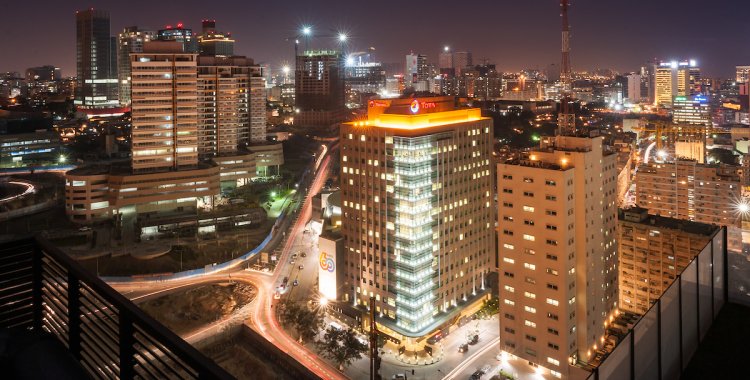"It is not out of the equation. We have a stabilized operational framework, which was prepared with the support of specialized consultancy, aligned with the best practices of the 'International Capital Market Association', so we are sure that we have a good operational framework to organize a issuance of sustainable debt", said the minister in Washington, on the sidelines of the 2024 Spring Meetings of the International Monetary Fund (IMF) and the World Bank.
Vera Daves indicated that she already has a list of potentially eligible projects as part of the process to "issue, whether 'blue' or 'green' (debt)", but regretted that the premium for issuing this type of debt is no longer favorable.
"We understand that the premium could be better. The interest rate could be lower. (...) We are, once again, talking to different partners so that we can be ready to move forward at all times. Homework is happening and now it's just a question of 'timings'", she told Lusa.
Green or blue debt are debt securities that meet environmental, social and governance (ESG) improvement criteria, and have been increasingly common in the context of combating climate change, which means that have a lower interest rate than the commercial rate and embrace a new class of investors who seek socially responsible financing for profit.
Regarding the exchange of debt to Portugal for green investments, similar to what is being prepared between Portugal and Cape Verde and São Tomé and Príncipe, Vera Daves confessed that the analysis of this possibility is still "at a very embryonic stage".
"We have been studying this possibility", but for Angola it would be essential to ensure savings based on the exchange and that the selected projects had a social and economic impact, explained the minister.
During the Spring Meetings of the IMF and the World Bank, the director of Angola's debt management unit will have meetings on this topic, with the expectation that the African country will begin "to build internal capacity, experience and knowledge so that when it moves forward, move forward safely", added Vera Daves.
Regarding the issuance of debt in international markets following the recent market consultation, the minister said that "the perception of risk (...) still does not allow" Angola to do so at the rates it considers acceptable, "always in single digits (...) and below 9 percent, 8 percent".
She admitted, however, to some "flexibility" regarding the financial terms they are willing to accept.
In terms of amounts, the annual debt plan indicates 300 million dollars, but it is "a reference" that can be "relocated between the different categories of external debt", so "everything is still open", she admitted.
The minister announced that, during the Spring Meetings, Angola will organize a forum with international investors, where she will share "recent developments and understand what issues they have".
The minister's visit to Angola also comes at a time when the North American think tank 'Center for Economic and Policy Research' estimates that Angola will have to pay 160 million dollars in surcharges to the IMF due to the loan profile.
Since 1997, the IMF has imposed, in addition to regular payments, additional fees, called 'surcharges', on loans to many of its most indebted borrowers.
Questioned by Lusa, the minister assured that Angola "will, naturally, continue to honor its commitments, even if they are painful".
"Angola is concerned about honoring its commitments and seeks to be correct so that it can continue to count on the trust of those who are its creditors," she said.
However, she did not stop advocating greater flexibility on the part of international institutions, especially for low- and medium-income countries.
Vera Daves also said that Angola will continue to advocate "in the appropriate forums (...) to debate the reform of the Bretton Woods institutions", that a balance be found between the need for these institutions to be financially sustainable and being able to maintain an entire structure in operation, but without making "the situation of countries that are already under stress even more difficult".
The head of Finance highlighted that there are countries that suffer from 'stress' related to debts – "in some cases asphyxiating" –, but also due to the large gap in terms of infrastructure, 'stress' of social indicators that require attention , poverty stress or managing climate change, including floods and drought.
"So that there is already so much happening and so many challenges to manage, we need the support and flexibility of institutions like the IMF, reducing as much as possible the charging of commissions and fees in the case of countries that are under stress, without I doubt it would be welcome", she appealed.







